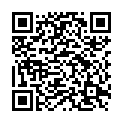|
|
|
| Module code: BAKM-070 |
|
|
2V+2S (4 hours per week) |
|
6 |
| Semester: 1 |
| Mandatory course: yes |
Language of instruction:
German |
Assessment:
Term paper with presentation
[updated 19.11.2019]
|
Exam recurrence:
The information regarding exam recurrence is found within the exam policy of the study programme (ASPO).
|
BAKM-070 (P430-0021) Cultural Management, Propädeutikum, ASPO 01.10.2020
, semester 1, mandatory course
|
60 class hours (= 45 clock hours) over a 15-week period.
The total student study time is 180 hours (equivalent to 6 ECTS credits).
There are therefore 135 hours available for class preparation and follow-up work and exam preparation.
|
Recommended prerequisites (modules):
None.
|
Recommended as prerequisite for:
|
Module coordinator:
Prof. Dr. Achim Schröder |
Lecturer:
Dozierende des Studiengangs
[updated 23.10.2018]
|
Learning outcomes:
After successfully completing this module, students will:
_ be able to demonstrate the importance of empirical social research in the field of cultural management.
_ be able to explain and apply the theoretical principles of science.
_ be able to transfer problems from the field of cultural management (alone or in a team) into a research design and then implement them using the methods, techniques and methods they have learned.
_ be able to prepare and analyze data independently, document key results and convey them to the group (as well as to external parties, if necessary) in a presentation.
[updated 19.11.2019]
|
Module content:
Lecture
_ Objectives and procedure of empirical social research (research process)
_ Scientific theory (definitions, hypotheses, theories and laws, explanation and naive falsification, empirical significance of theories)
_ Concept specification, operationalization and measurement (scales, quality criteria, indexing and scaling)
_ Research design and types of research
Non-random sampling
_ Data collection techniques (interviewing, observation, content analysis, non-reactive measurement techniques)
_ Data preparation and analysis
_ Interpretation and publication
Seminar on focus area:
_ Students will get the chance to apply the content conveyed in the lecture to a task or problem from the field of cultural management.
[updated 19.11.2019]
|
Teaching methods/Media:
_ Lecture and seminar
_ Case studies
_ Role playing
_ Group and project work (concept development and presentation)
_ Discussions with fellow students and third parties
_ Presentations and preparation of documentation/papers
Students will learn to develop and implement research concepts, as well as present their results based on independently conducted studies.
[updated 19.11.2019]
|
Recommended or required reading:
_ Atteslander, P., Methoden der empirischen Sozialforschung. Erich Schmidt Verlag, Berlin, latest edition
_ Fantapié Altobelli, Claudia: Marktforschung : Methoden, Anwendungen, Praxisbeispiele, UVK/Lucius, München, latest edition
_ Fantapié Altobelli, Claudia; Hoffmann, Sascha: Grundlagen der Marktforschung, UVK/Lucius, München, latest edition
_ Flick, U., Qualitative Sozialforschung: Eine Einführung, rororo, 2007
_ Koch, Jörg: Marktforschung. Grundlagen und praktische Anwendung, Oldenbourg, München, latest edition
_ Schnell/Hill/Esser: Methoden der empirischen Sozialforschung, Oldenbourg, München, latest edition
_ Przyborski, A., Wohlrab-Sahr, M.: Qualitative Sozialforschung: Ein Arbeitsbuch, Oldenbourg, latest edition
[updated 19.11.2019]
|


